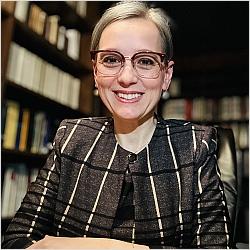Enika Cocoli Bowen, Ph.D.
Enika Cocoli Bowen, Ph.D.
FeaturedVerified
Professions: Psychologist
License Status: I'm a licensed professional.
Primary Credential: Psychology - PY 3893
Telephone: 206-800-6312
Billing and Insurance:
I am an in-network provider for:
- Cigna
Session Fees: $175
A different fee can be negotiated for students, veterans, and higher than weekly frequency.
Sliding Scale Available
Evening Availability
What's My Approach to Therapy?
I am a clinical psychologist in private practice. I work with adults who seek help for relationship concerns, depression, anxiety, attention deficits, substance useabuse, traumas big and small, and many other questions that come up in daily life. An open and honest dialogue is possible in an atmosphere of listening and thinking. Our sessions are private and confidential.
Talking things out is the first and easiest ways to identify the root causes of many problems. Thinking things through is like putting together a puzzle. You might already know what the final picture will be and getting there is a very fruitful journey.
My Practice & Services
After an introductory call, we meet in person in my private office, located in a very quiet and discreet neighborhood, where your privacy and confidentiality are well protected.
If you live and work nearby, we meet in person. If you live far away, or anywhere in the United States, we meet remotely. Through PsyPact, I am authorized to work with anyone from most areas of the United States. Check out this link to see if your state or area is included: https:psypact.orgmpagepsypactmap.
What I Love about Being a Psychotherapist
The most beautiful feature of the human mind is its strength to tackle every issue that comes to its attention, whether a small event, a big trauma, or a mental health diagnosis. Different issues require different attention; however, strengthening your mental and thinking capacities will lift all symptoms and bring about improvements you can count on.
On the Fence About Going to Therapy?
Throughout many years of experience, I have found that the best way to help you and help yourself is to bring together all areas of your life in the fullest and most complete picture. This takes some time and therapy done this way is not a quick fix. In the first few sessions, we will focus on getting to know many aspects of yourself. Afterwards, we will deepen our understanding of all areas.
My View on the Nature of 'Disorders'
All of us struggle in our lives; some struggle a lot, some struggle a little, but we all know what struggles are. In therapy, I try to understand these struggles within the frame of your whole self. I don't consider disorders as labels and I have found that people, including myself, don't like to be labeled. This is why in session, we focus less on the disorder and more on how we can make meaning of what is going on. We decide together in dialogue on best ways to improve the situation. I fall back on the same principle: The therapeutic space is your space and you have a lot of say in what goes on in there. Let's keep working at it. We'll find the way out.
Therapy Services & Specialties
Client Age Groups I Work With
- Adults
Languages
- Italian
Groups I Work With
- All adults that wish to explore themselves more deeply.
Client Challenges & Concerns I Address
- Addictions and Compulsions
- Adjusting to Change / Life Transitions
- Anxiety
- Attachment Issues
- Bipolar
- Blended Family Issues
- Communication Problems
- Control Issues
- Depression
- Dissociation
- Drug and Alcohol Addiction
- Emotional Abuse
- Emotional Overwhelm
- Emptiness
- Family of Origin Issues
- Family Problems
- Fear
- Forgiveness
- Grief, Loss, and Bereavement
- Helplessness / Victimhood
- Inadequacy
- Individuation
- Infidelity / Affair Recovery
- Irritability
- Life Purpose / Meaning / Inner-Guidance
- Midlife Crisis / Midlife Transition
- Mood Swings / Mood Disturbance
- Panic
- Posttraumatic Stress / Trauma
- Relationships and Marriage
- Schizophrenia
- Self-Care
- Self-Confidence
- Self-Criticism
- Self-Doubt
- Self-Esteem
- Self-Harm
- Self-Love
- Sexual Assault / Abuse
- Shame
- Social Anxiety / Phobia
- Spirituality
- Stress
- Trust Issues
- Worry
- Worthlessness
Therapeutic Approaches & Evidence-Based Methods
- Depth Therapy
- Depth-Oriented Brief Therapy
- Dreamwork
- Intensive Short-Term Dynamic Psychotherapy (ISTDP)
- Object Relations
- Psychoanalysis / Modern Psychoanalysis
- Psychodynamic
See other therapists in Brier, WA.
